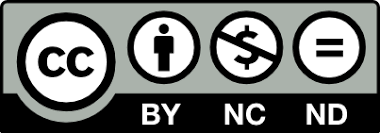IRONY AND SARCASM – VERBAL RESISTANCE AGAINST WESTERN STEREOTYPES
Keywords:
stand-up, satire, stereotypesAbstract
This research examines the role of sarcasm and irony in transmitting protest in the speeches of Muslim stand-up comedians in America. The study includes jokes from ten performances of four top-rated Muslim stand-up comedians analysed through the exclusively elaborated criteria that include the concept of ‘face’, ‘target’, ‘implicature’. The results of the research show that ironic and sarcastic utterances applied in comedians’ speeches were related to the most painful stereotypes about the Muslim community. Accordingly, irony and sarcasm were the major resources used to confront these stereotypes. The results of the present research revealed that irony and sarcasm can be effective rhetorical and persuasive instruments against well-established beliefs and stereotypes. We propose that they can be used in other situations with similar success.
Full Text (PDF)
References
Abrams, D. and Michael A. Hogg. 1990. Social Identity Theory: Constructive and Critical Advances. London: Harvester- Wheatsheaf.
Abrams, M. H., & Harpham, G. G., A glossary of literary terms, 9th Ed., Wadsworth Cengage Learning, 2009.
Bryant, Gregory A., and Jean E. Fox Tree. "Recognizing Verbal Irony in Spontaneous Speech." Metaphor and Symbol 17.2 (2002): 99-119. Web.
Davis, Darren W. 1995. ‘‘Exploring Black Political Intolerance.’’ Political Behavior17 (1): 1–22.
Davis, Darren W. 2006. Negative Liberty: Public Opinion and the Terrorist Attacks on America. New York: Russell Sage Foundation.
DIEHL, N. (2013). Satire, Analogy, and Moral Philosophy. The Journal of Aesthetics and Art Criticism, 71(4), 311-321. Retrieved June 5, 2020, from www.jstor.org/stable/42635868
Douglas M. Implicit Meanings: Selected Essays in Anthropology Paperback – 22 Jul 1999 Routledge; 2 edition (22 July 1999) ISBN-10: 0415205549 ISBN-13: 978-0415205542
González-Fuente, S. Escandell-Vidal, V. and Prieto, P. "Gestural Codas Pave The Way To The Understanding Of Verbal Irony." Journal of Pragmatics 90. (2015): 26-47.
Kinsley, William. "'The Malicious World' and the Meaning of Satire." Genre 3 (June 1970): 137-155.
Lawrence E. Mintz Source: American Quarterly, Vol. 37, No. 1, Special Issue: American Humor (Spring, 1985), Published by: The Johns Hopkins University Press Stable URL: https://www.jstor.org/stable/2712763 Accessed: 29-04-2020 09:39 UTC
Lee, C. J., & Katz, A. N. (1998). The differential role of ridicule in sarcasm and irony. Metaphor and Symbol, 13, 1–15.
Martin, R. A., The Psychology of Humor: An Integrative Approach, Elsevier Academic Press, 2007. p. 13.
Morris G. Caldwell, Heroes, Villains, and Fools: The Changing American Character. By Orrin E. Klapp. Englewood Cliffs, N. J.: Prentice-Hall, Inc., 1962. 176 pp. $3.95, Social Forces, Volume 41, Issue 2, December 1962, Pages 215–216, https://doi.org/10.2307/2573621
Myrdal, Gunnar. 1944.An American Dilemma: The Negro Problem and Modern Democracy. New York: Harper &Brothers.
Nacos, Brigitte L., and Oscar Torres-Reyna. 2002. ‘‘Muslim Americans in the News before and after 9–11.’’ Presented at the symposium ‘‘Restless Searchlight: Terrorism, the Media &Public Life.’’ Harvard University.
Quintero, R. (2011) A Companion to Satire: Ancient and Modern 1st Edition. Wiley-Blackwell; ISBN-10: 9780470657959
Sperber, D. and Wilson, D. (1995) Relevance: Communication and Cognition. Second edition. Oxford UK and Cambridge USA: Blackwell. First published 1986.
Turner, Edith. 1992. Experiencing Ritual: A New Interpretation of African Healing. Philadelphia, PA: University of Pennsylvania Press. ISBN 978-0812213669
Wilson, D. "The Pragmatics Of Verbal Irony: Echo Or Pretence?" Lingua 116.10 (2006): 1722-1743.
Ramy Youssef Is Expecting A Hogwarts Letter From ISIS https://www.youtube.com/watch?v=I9R6vtcD09I&t=42s Published on May 12, 2017. Retrieved on 5 June, 2020.












